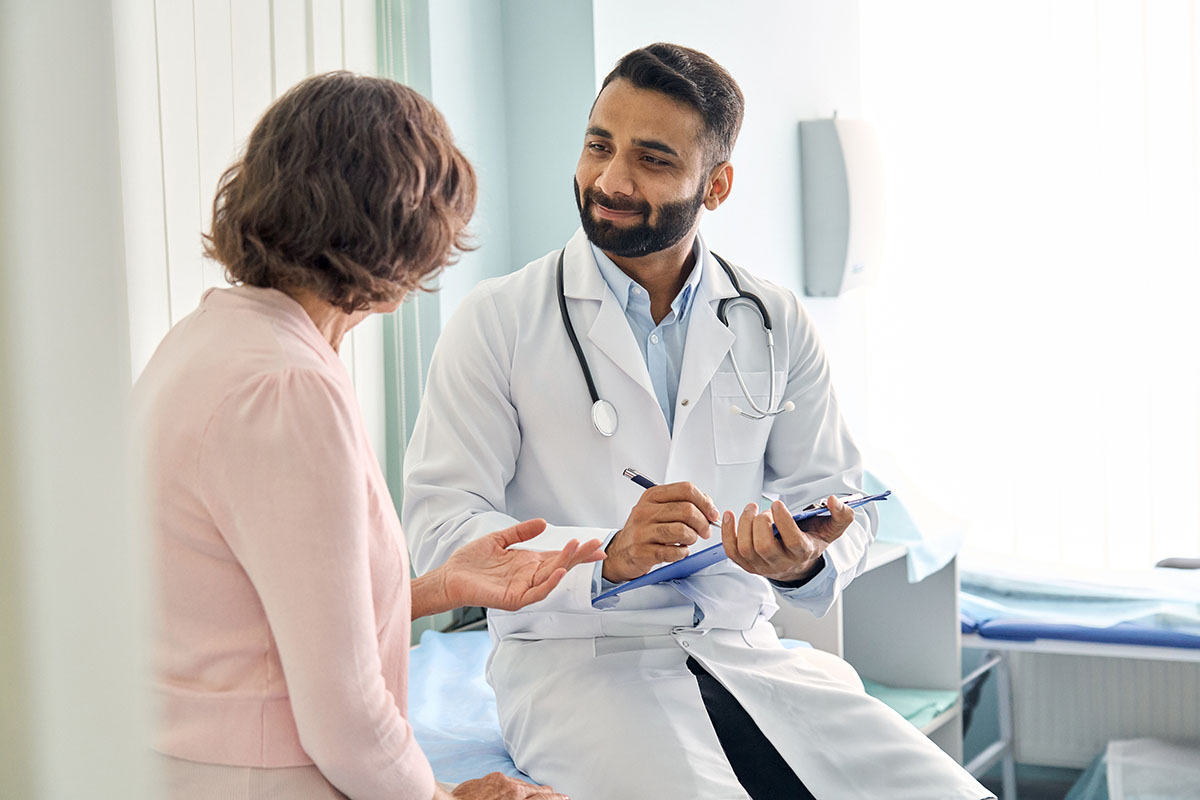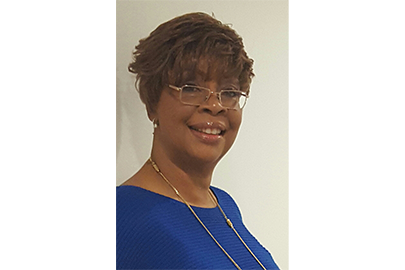
Now Enrolling: The EA2205 research study is testing a new treatment approach for a rare form of liver cancer
September 26, 2022
Trial Results: A recent ECOG-ACRIN study finds excellent results for patients with acute lymphoblastic leukemia (ALL)
January 5, 2023For people with stage 4 cancer, survivorship is complicated

Robin Evans, ECOG-ACRIN Cancer Research Advocate
When Robin Evans was diagnosed with stage 4 metastatic (advanced) breast cancer in 2008, her doctor told her to start putting her affairs in order. She estimated that Robin had about three months to live. In short, Robin’s doctor did not just tell her that she might die of her disease, but that she was going to die–and soon.
During this conversation, the term ‘survivor’ was far from Robin’s mind—but today, she understands that this was the moment she became one.
The idea that a survivor must be someone who has finished treatment, and has no signs left of cancer, is outdated. Thanks to advances in cancer research, people like Robin are living longer, fulfilling lives—even with their advanced cancer. Stage 4 cancer is the most severe stage of cancer, with the highest risk of mortality. It is usually advanced beyond the part of the body where it started and requires more aggressive treatment. However, it is not always terminal.
As a result, ‘survivor’ now includes people in treatment and people with advanced cancer. Still, some tension exists within the survivorship community as the definition of a survivor grows and evolves. Below, Robin shares her story and her perspective on this tension.
What was your experience with the survivorship community when you were first diagnosed?
Sometimes, there is a tendency to dismiss people with stage 4 cancer. People might assume there is no hope, so why waste resources on us? They think the focus should be on helping people with stage 1 or 2 cancers or on prevention. That seems to be the perspective of some oncologists, too—like the first doctor I saw back in 2008. She was very dismissive of me and only spoke to my husband, telling him to take me home and prepare for the worst. The lack of hope I felt in that moment was devastating.
On the drive home, though, I made a decision: instead of preparing to die, I was going to live.
I received a second opinion, found a new doctor, Dr. Edith Mitchell, and began treatment. That is when I became interested in cancer research. Dr. Mitchell would invite me to talks and conferences, and I started to learn more about clinical research. She recommended me as a grant reviewer and then eventually asked me to go to an ECOG-ACRIN conference to share my perspective. I told her I didn’t think I would be of much value and that I didn’t know anything about science.
She said, “We don't need you for your science; we need you for your voice.”
Do you consider yourself a survivor?
I remember talking to a group one time, and I said, “Raise your hand if you’re a survivor.” Several people did not raise their hands. I asked one woman why and she said, “Oh, I was just diagnosed, and I’m just starting treatment.”
I told her, “You are a survivor. You are a survivor from the day you’re diagnosed because before then, you didn’t even know you had a battle to fight.”
I don’t really focus on my cancer’s stage—I just consider myself a survivor. The main difference for me is that, at this point, I don’t get to say I’m cured.
What are the different experiences of people who have earlier-stage cancers compared to those who have stage 4 cancer?
For people with advanced cancer, there is definitely a stigma related to the lack of treatments that used to exist. Also, if you are someone who was just diagnosed with early-stage cancer, and you are just starting treatment, you might not want to be around the person others view as having no hope.
There are treatments now, though, for people with advanced cancers.
Yes, now. Historically, that was not the case. Perhaps that may make the difference in bridging the divide between early- and late-stage survivors. In the general breast cancer community, patients get to ring the bell when they finish treatment. They get to say they’re cured. People with advanced cancer do not get to do this.
Another important issue for late-stage survivors is side effects. Not only are we surviving, but we are living with the aftermath of some of the harsh treatments used ten years ago.
What is something you wish the survivorship community knew about living with advanced disease?
We are on a journey too. It might be a more difficult journey, but we need love and support like all other survivors. We have families and we’re part of the community. Solving my problem also solves yours.
It is never a good thing to divide or separate people. The sooner we come together as just survivors, the better off we will be. We all have a part to play in our effort to end cancer.
Robin Evans is member of ECOG-ACRIN’s Breast Cancer Committee and Cancer Research Advocates Committee. She would like to thank her mentor, Susan Axler, who encouraged and supported her as a cancer research advocate. Susan was a longtime survivor and experienced cancer research advocate who took Robin under her wing and helped her to fly. Susan passed away in 2017 after living with cancer for 16 years. Robin dedicates all she does in cancer research to Susan.


5 Comments
Hi Robin!
Thank you for sharing your experience. Your voice is so important and such an encouragement to all survivors.
I thoroughly enjoyed reading about Robin’s perspective and bringing awareness to those living with cancer in the present. They are as much as a survivor, as those who are currently cancer-free. Thank you,
Thank you for sharing this article. Robin’s journey is not only endearing but triumphant on many levels. Dr. Mitchell was right. We need your voice and the voices of others to educate and support our community.
My late wife, Susan Axler, was honored to work with Robin and would be overwhelmed to see her contributions to breast cancer research and the personal ,deeply caring help she provides to women impacted by breast cancer. I frequently observed their loving relationship. No tribute to Sue could match Robin’s wonderful, heartfelt words. Sue immediately recognized the strength, abilities and love that is Robin Evans. Michael Axler
Robin Evans broad-reaching and innovative approach to Breast Cancer Research and Survivorship is unparalleled, a model for medical professionals to replicate.
I have been gracefully afforded the opportunity to observe Robin in both her personal and professional space. Without reservation, she remains consistently passionate about advancing Breast Cancer Research, Breast Cancer Advocacy, demonstrating notable strength and self-compassion while fighting Stage 4 Breast Cancer.
Many Thanks for actively forging new Breast Cancer Awareness pathways in a manner that exudes dignity and inspiration for women with Breast Cancer as well as Breast Cancer Survivors.
Know that your unique tiered approach to addressing the Breast Cancer disparities for African American women and other marginalized communities is duly noted and highly regarded.
You are APPRECIATED BRIGHT STAR and a GIFT to HUMANITY at large!